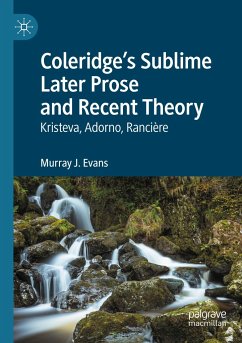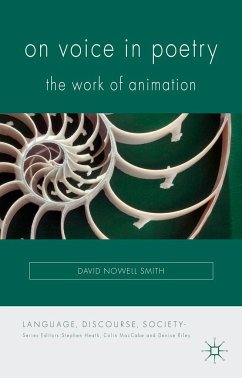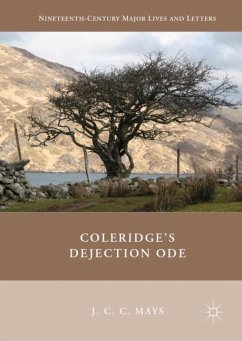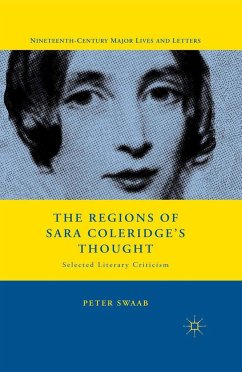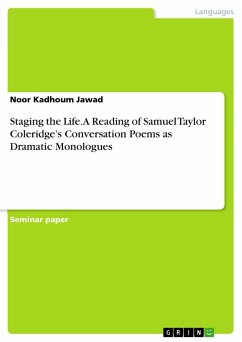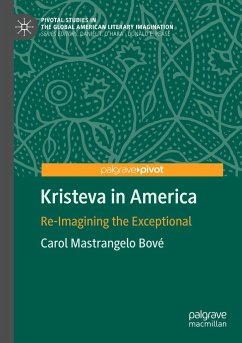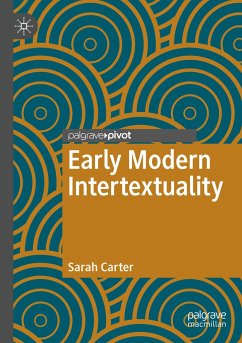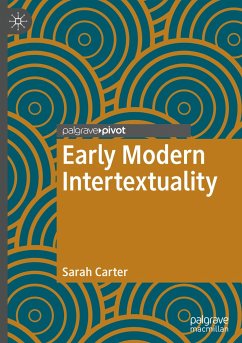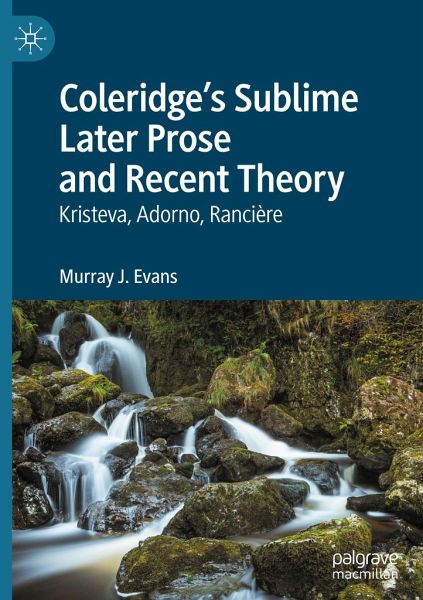
Coleridge's Sublime Later Prose and Recent Theory
Kristeva, Adorno, Rancière
Versandkostenfrei!
Versandfertig in 6-10 Tagen
91,99 €
inkl. MwSt.
Weitere Ausgaben:

PAYBACK Punkte
46 °P sammeln!
This book explores the sublime in Samuel Taylor Coleridge's later major prose in relation to more recent theories of the sublime. Building on the author's previous monograph Sublime Coleridge: The Opus Maximum, this study focuses on sublime theory and discourse in Coleridge's other major prose texts of the 1820s: Confessions of an Inquiring Spirit (wr. 1824), Aids to Reflection (1825), and On the Constitution of the Church and State (1829). This book thus ponders the constellations of aesthetics, literature, religion, and politics in the sublime theory and practice of this central Romantic aut...
This book explores the sublime in Samuel Taylor Coleridge's later major prose in relation to more recent theories of the sublime. Building on the author's previous monograph Sublime Coleridge: The Opus Maximum, this study focuses on sublime theory and discourse in Coleridge's other major prose texts of the 1820s: Confessions of an Inquiring Spirit (wr. 1824), Aids to Reflection (1825), and On the Constitution of the Church and State (1829). This book thus ponders the constellations of aesthetics, literature, religion, and politics in the sublime theory and practice of this central Romantic author and three of his important successors: Julia Kristeva, Theodor Adorno, and Jacques Rancière.



